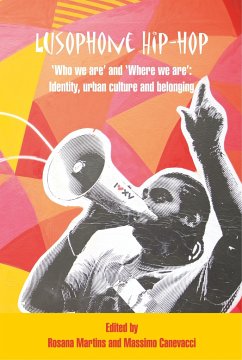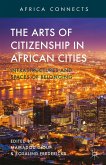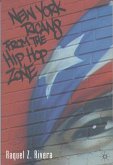This book brings multiple sites of lusophony together, and illuminates how mobile configurations of people, technologies and hip-hop creativities are best understood as compositions of ubiquitous identities, dispersed communities and syncretic networks. Significantly, the chapters highlight identity narratives that clash with the city, yet which play an important part in its reconstruction and resignification. Occupying public space, creative expressions of young people provide critiques of the social order, mainstream media and criminalization of fringe neighbourhoods. In this way, hip-hop has become a political instrument of an 'I' that is excluded and marginalized. Its growth has led to a global movement incorporating local forms such as traditional musical arrangements and native languages. Its messages educate youths about citizenship, addressing their reality of racial discrimination and oppression. At the same time, hip-hop continues to innovate at the street level, constantly rejecting and challenging a consumer culture that seeks to co-opt it. The pillars of hip-hop - rapping, DJing, break-dancing, graffiti, and now political organization - are considered across three continents, in a collection that seeks to provide more nuanced characterizations of contemporary relationships between lusophone countries allowing dialogue about inter/intra, colonial/racial contradictions and their impact on power structures. Lusophone Hip-hop offers fascinatingly diverse perspectives on rich source material little-known to readers more familiar with hip-hop in African American contexts. 'Lusophone Hip-Hop is one of the most exciting books linking contemporary culture to human rights. This work shows how hip-hop in the 'peripheries' of Lusophone countries is emerging as an art form in its own right, and, in doing so, is providing hope, meaning and purpose to the young creative artists. Working through non-commercial and commercial networks, this street culture speaks for generations of the dispossessed.' - Prof. Colin Samson, University of Essex 'An original and innovative approach to new urban cultures, connecting shared experiences which are impregnated with stories of Lusophonies.' - Prof. Francisco Rui Cádima, Universidade Nova de Lisboa (FCSH-UNL) 'I consider this book essential to the vigour of the Fifth Element of Hip-Hop.' - Evandro Vieira Ouriques, Director of the Fifth Element of Zulu Nation Portugal








